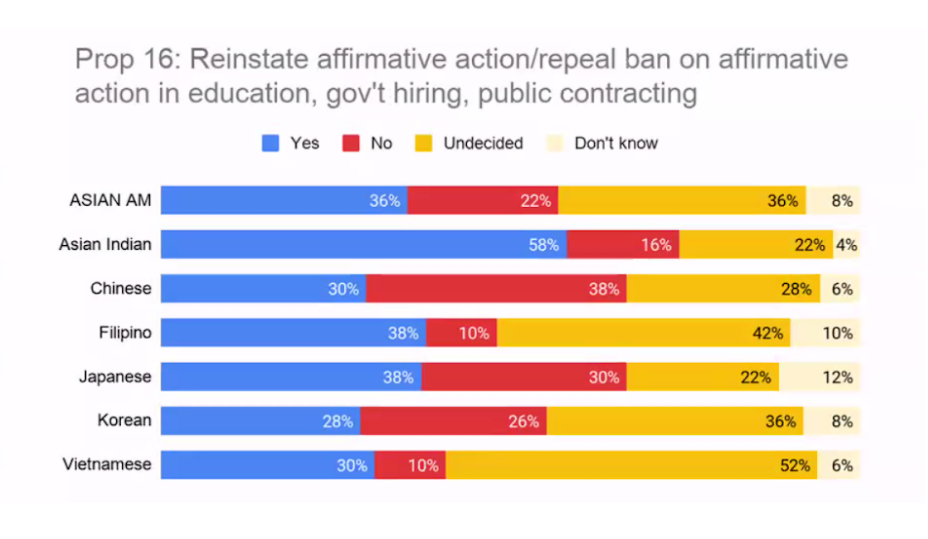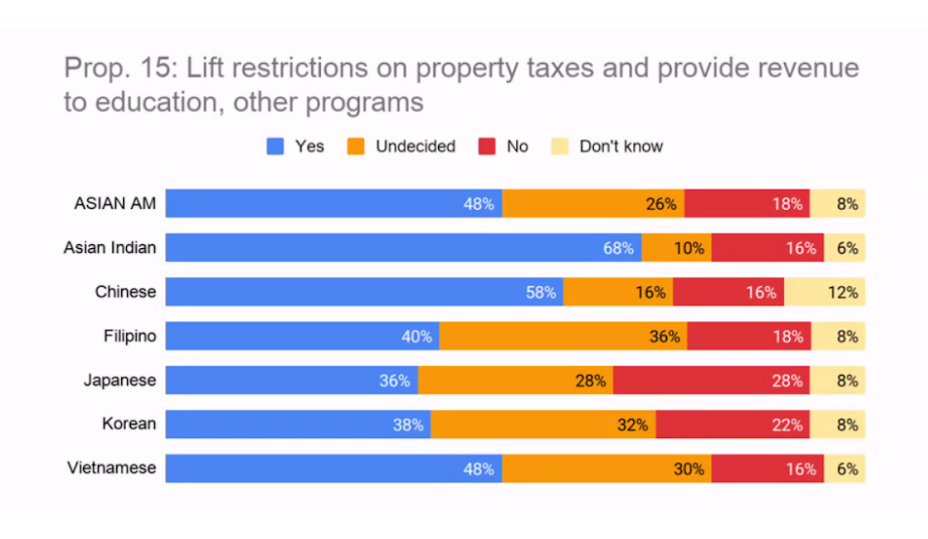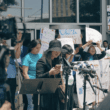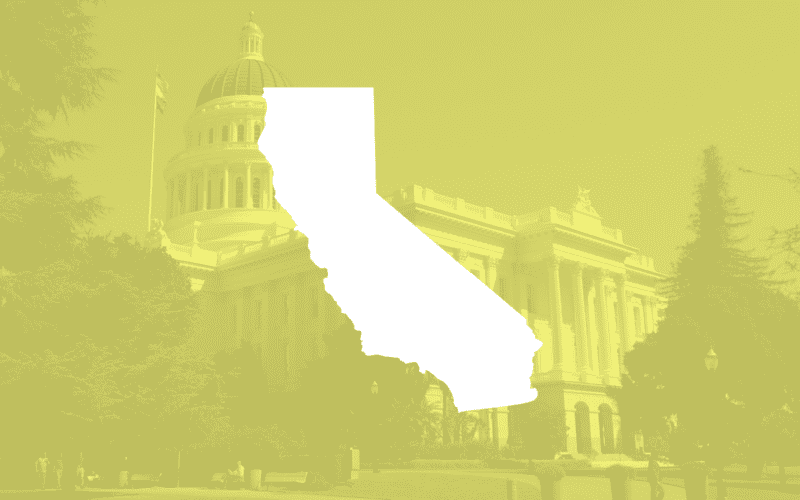While most registered Asian American voters in California lean towards support for Propositions 15 and 16, a significant number remain undecided ahead of the November election, researchers at the nonpartisan policy research organization AAPI Data said Wednesday.
Voters in the state are poised to decide the fate of 12 ballot measures in just weeks. Proposition 15, which would raise property taxes on many large businesses while providing billions in funding for schools and local governments, and Proposition 16, which would overturn California’s longtime ban on affirmative action, are two of the most closely watched.
Most Asian American voters support the two key measures, but the vote could go either way depending on mobilization in the next few weeks, AAPI Data Founder and Director Karthick Ramakrishnan said in a Wednesday press briefing. There is “lots of room for persuasion,” he added.
According to the newly published California Asian American Voter Survey, 36% of registered Asian American voters support reinstating affirmative action in education, government hiring, and public contracting. 22% oppose Prop. 16, while 36% are undecided on the measure. An additional 8% responded that they did not know.
Meanwhile, 26% of respondents said they were undecided on Prop 15. 48% backed the measure, while 18% said they were opposed. 8% responded that they did not know.




Asian American voters are likely to be a deciding factor in races across the state, and progressive AAPI advocacy groups and business associations have been particularly aggressive in reaching them on Prop. 15, said Timmy Lu, executive director of the AAPIs for Civic Empowerment Education Fund.
There are more than four million eligible AAPI voters in California, according to an APIAVote factsheet, and Asian Americans make up roughly 10% of registered voters in the state.
AAPI Data surveyed 610 registered California voters as a subsample of the larger national pool, with interviews conducted in English, Chinese, Korean, and Vietnamese from July 15 to Sept. 10.
The survey results generally mirror national trends, with high enthusiasm for the 2020 election and Asian American Democrats outnumbering independents and voters who declined to state their political affiliation. Wednesday’s briefing invited community organizers to speak on its findings and grassroots mobilization ahead of November.
“This data really is important because it confirms our experience on the ground, that the Chinese and Asian electorate is part of the new rising majority in this country that is trending towards supporting economic and racial justice,” Chinese Progressive Association’s Executive Director Shaw San Liu said. “At the same time, there are many in our community who are misinformed, deliberately misinformed, undecided, faced with polarizing information, and have been left out, ignored, and excluded by the political establishment.”
Researchers also held a number of focus groups partnering with local community organizations. With variety in age, language, and ethnicity, the focus groups showed that Asian American voters are shifting from interest in voting in person—but many still want the option because of the language assistance resources. Voters also expressed high interest in mail-in voting but some concern about whether they would be sent in time and counted.
“We’ve matched [political desire] with mass mobilization,” Lu said. “These results speak to the desire for a greater impact.”









